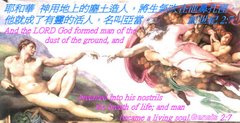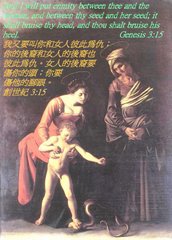靈命日糧 - 2007年10月11日
為何施捨
讀經: 馬太福音6章1-4節
金句: 「你施捨的時候,不要叫左手知道右手所做的。」(馬太福音6章3節)
全年讀經: 以賽亞書37-38章;歌羅西書3章
金融時報的專欄作者提姆·哈福德問道:「單純的施捨觀念已不存在了嗎?你越細看慈善施捨,越看不清慈善的面目。」舉例來說,一個挨家挨戶募捐的活動研究發現,以幸運抽獎的方式籌來的款項,遠遠超過人們單為慈善而捐出的鈔票。
哈福德說:「這項研究表明:這個世界並沒有許多無私的人想用善款造福眾人。」至少對某些人來說,捐贈是一種互惠互利的途徑。
主耶穌也講過施捨的動機。他說不要叫左手知道右手所做的,就是教導我們,奉獻給上帝或施捨給人,動機必須要純正。我們奉獻施捨,是在回應上帝的愛。為了激勵純全的動機,耶穌教導人施捨行善都要在暗中,不要想到自己。上帝會查看一切,必然報答他們(馬太福音6章3-4節)。
我們的慷慨應該是以上帝為中心──不是讓我們看起來很良善,而是要討上帝喜悅。你下次行善時,當問問自己:如果沒有人看到我所做的一切,我還會這麼做嗎?MW
帶著寬宏自由靈,主賜我們行善恩;我們一生年和日,完全向他來獻呈。Murray
上帝不僅看施捨之物;也看施者之心。
------------------------------------------------------------------------------------------------
October 11, 2007
Why Do We Give?
ODB RADIO: Listen Now DownloadREAD: Matthew 6:1-4
When you do a charitable deed, do not let your left hand know what your right hand is doing. —Matthew 6:3
-->About this cover
Whatever happened to the notion of giving for the sake of giving?" asked Tim Harford, columnist for FinancialTimes. "The closer you look at charitable giving, the less charitable it appears to be." A study of door-to-door fund-raising campaigns, for instance, found that organizations earned far more by selling lottery tickets than by asking for donations.
"This hardly suggests a world populated by altruists seeking to do the maximum good with their charitable cash," says Harford. At least for some people, there’s a something-for-me/something-for-you approach to giving.
Jesus also dealt with the issue of motives in giving. When He said not to let your left hand know what your right hand is doing, He was teaching that our motives for giving to God and to others must be pure. Our giving should be in response to God’s love. To encourage pure motives, Jesus instructs people to give and to do good deeds in secret with no thought of themselves. God, who sees everything, will reward them (Matt. 6:3-4).
Our generosity should be God-centered—not to make us look good, but to please the Lord. With your next good deed, ask yourself: If I knew that no one would ever find out that I did this, would I still do it? —Marvin Williams—Marvin Williams-->
Grant us, then, the grace for givingWith a spirit large and free,That our life and all our livingWe may consecrate to Thee. —Murray
God sees the giver as well as the gift; the heart as well as the hand.
For similar resources, search these topics:Ministry and Outreach > Spiritual Gifts > Giving
Bible in One Year: Isaiah 37-38; Colossians 3
------------------------------------------------------------------------------------------------
早嘗禁果 子宮頸癌機率大
【中新網】早嘗「禁果」者,即20歲以前有性生活史者,是子宮頸癌高發群。
據新聞晚報報導,臨床資料顯示,如今年輕子宮頸癌患者中,早嘗「禁果」即20歲以前有性生活史的比例接近70%,這些女性患子宮頸癌的危險度是20歲前無性生活女性的六倍。專家分析,原因可能是因為20歲以下女性的生殖道黏膜尚未發育完善,子宮頸黏膜對細菌及病毒等致癌物質的作用較敏感,易患子宮頸癌。
上海交通大學附屬仁濟醫院婦產科主任狄文教授說,目前在年輕女性中,妊娠次數和分娩次數達三次以上的女性逐漸減少,年輕女性子宮頸癌發病的主要因素不再是多產、多孕。而早嘗「禁果」即20歲以前有性生活史的患者比例大幅上升,臨床35歲以下年輕子宮頸癌患者佔患者總數的比例上升至17%,比上世紀90年代初期翻了一倍。最年輕的患者僅21歲。狄文教授表示,子宮頸癌在婦科腫瘤中的發病率居第二位,一般是由高危型人乳頭狀瘤病毒(HPV)感染後所致。專家建議,有性生活史的年輕女性,應定期做子宮頸細胞學防癌檢查,以有效降低年輕女性子宮頸癌的發病率。
2007-10-10
~ | ~閱覽更多新聞,請看世界日報。
------------------------------------------------------------------------------------------------
Early taste of the forbidden fruit of cervical cancer risk
【- - Early taste of the "forbidden fruit", that is, before 20-year-old sexual life history, is a group of high cervical cancer. The Evening News reported, clinical information, but young patients with cervical cancer, early taste of the "forbidden fruit" that the 20-year-old before sexual life history ratio close to 70% are women with cervical cancer risk is 20-year-old former female clones life six times. Expert analysis, the reason may be because the 20-year-old female reproductive tract mucosa have yet to develop sound, cervical mucosa of bacteria and viruses, and the role of carcinogenic substances more sensitive and susceptible to cervical cancer.
Shanghai Jiaotong University subsidiary YCH professor of obstetrics and gynecology, director of DI Wen said, in young women, the number of pregnancy-and childbirth-more than three times the number of women gradually reduce young women cervical cancer incidence is no longer a major factor in productive, and more pregnant. The early taste of the "forbidden fruit" that the sexual life cycle before age 20 significantly increased the proportion of patients, under the age of 35 young patients with cervical cancer patients of the total proportion rose to 17% compared with the early 1990s doubled. The youngest patient only 21 years old. Professor DI Wen said, cervical cancer in gynecologic cancer incidence rate in second place, usually by high-risk human papilloma virus (HPV) infection due. Experts suggest that the sexual life cycle of young women, regular cervical cytology anti-cancer screening, young women to effectively reduce the incidence of cervical cancer.
2007-10-10
Read more news, see World Journal.
Thursday, October 11, 2007
Subscribe to:
Post Comments (Atom)











No comments:
Post a Comment